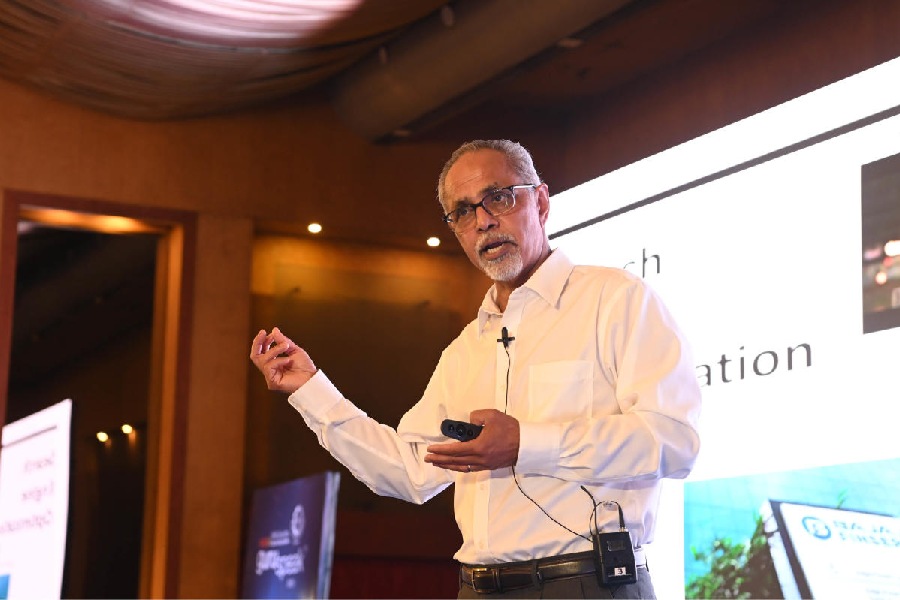Artificial intelligence, touted as the game changer in business transformation, is vulnerable to inherent human biases, a global marketing guru said.
“As human beings, biases creep into our decisions. They are a function of a complex web of factors — our experiences, what we see and hear. We make interpretations based on that. We make judgements based on that. Sometimes we are not even aware of the biases,” said Manjit Singh Yadav, the JC Penney chair in marketing and retailing studies, Mays Business School, Texas A&M University, USA.
“AI systems have been trained with data. The biases we see in society are going to be reflected in any system that has been trained on that data.”
The IIM Calcutta Alumni Association Guruspeak 2025, in association with The Telegraph, saw Yadav conducting a day-long workshop on the growing role of artificial intelligence in marketing and business transformation on Saturday.
Yadav spoke to The Telegraph on the sidelines of the workshop, at a hotel on AJC Bose Road. He shared his thoughts on the concerns surrounding the ever-growing role of AI.
One of them is about bias, a fundamental problem that AI models are grappling with. AI models learn from data created by humans. Which means the inherent human biases based on gender, caste, religion and many other factors make their way into the AI models.
“There is potential for biases in AI systems, the answer is completely yes, as there is a real possibility of amplification,” he said.
But the possibility also provides ample scope for companies to set up a system designed to correct these biases.
Yadav also shared his thoughts on allegations that AI breaches the privacy of consumers.
“Privacy remains a huge unresolved problem.... We need new technologies which will give us the opportunity to protect the information that we value,” he said.
Yadav advocated action at the policy level. He cited the General Data Protection Regulation (GDPR), a European Union law focused on data protection and privacy for individuals within the EU.
“India itself has a legislation... Aadhaar and the biometric infrastructure have allowed a lot of people to get benefits. But there is a potential for fraud and a potential for violation to people’s privacy. So that is where we need legislation, where policy can play an important role, because the average person is not going to have technical proficiencies to be able to protect themselves,” said Yadav.
India passed the Digital Personal Data Protection Act in 2023. But the draft Digital Personal Data Protection Rules, 2025, were circulated only in January this year.
The workshop that Yadav helmed drew its audience from budding and veteran managers, marketing and brand executives, marketing teachers and other professionals.
In the first session, Yadav spoke on the history of AI. The second session had him share several case studies to show how AI is influencing decision making about product, pricing, distribution and other areas. He spoke at length on the application of AI across diverse sectors like education, agriculture, healthcare, fintech, transport and even forestry.
In the third session, Yadav discussed the challenges in managing the growth and impact of AI. The fourth session was an open house.
Guruspeak is IIMCAA Calcutta Chapter’s annual signature event.
“IIMCAA Calcutta Chapter has been continuing management education with its initiative. And in the 16th edition of Guruspeak, our signature programme, we have done the same,” said IIMCAA Calcutta Chapter chairman Amit Roy.










